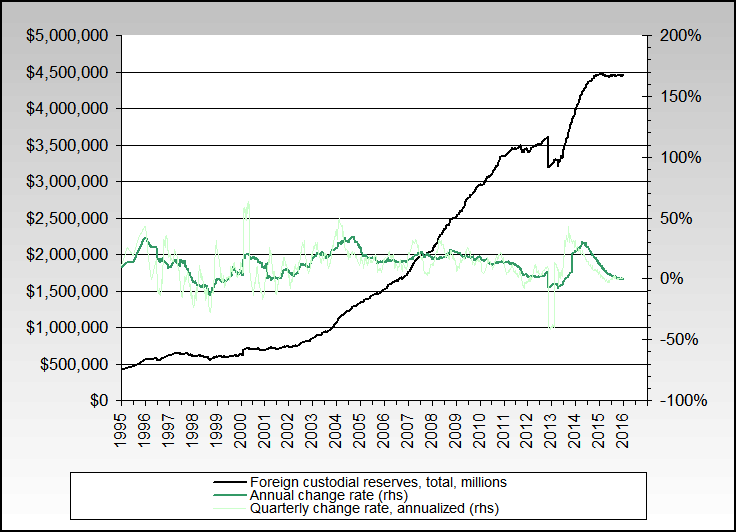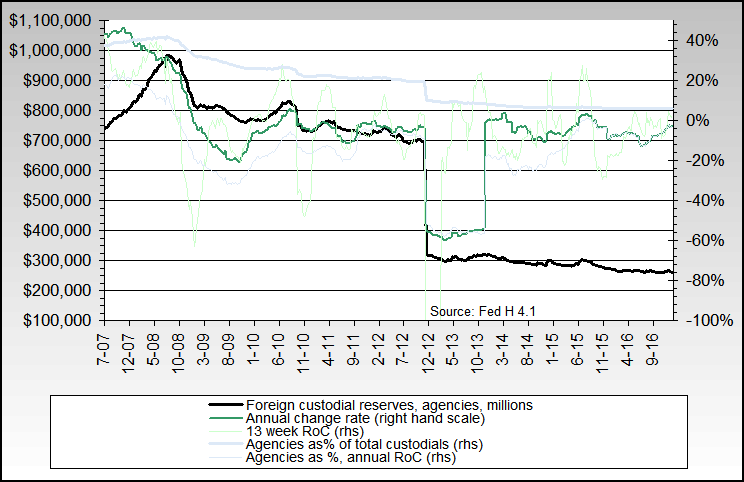- Euribor-EBF strongly condemns illegal practices (9 July 2012)
- Euribor-EBF welcomes Commission proposal to outlaw market manipulation (25 July 2012)
- Euribor-EBF response to the EC Consultation on the Regulation of Indices (28 Nov. 2012)
"Euribor-EBF believes that the Euribor benchmark should be run by an independent, non-profit driven structure, with the introduction of public supervision. [...] Euribor-EBF supports the introduction of European public supervision on benchmarks. Supervision should also apply before and after the fixing delivery."
- ACI and Euribor EBF express concern about withdrawal of panel banks from benchmark fixings (5 december 2012)
"The European Commission [...] wish[es] to have the Euribor panel as large as possible in order to enhance the credibility of the benchmark. Therefore, they are considering making mandatory for banks with a significant turnover in the money markets to be part of the panel."
- Euribor-EBF supports EBA/ESMA Recommendations (11 January 2013)
"Euribor-EBF agrees with the agencies that more specific controls have to be in place and that banks have to implement strictly the Code of Conduct they subscribe to when contributing to Euribor."
- Ensuring the smooth functioning of money markets (Speech by Benoît Cœuré, Member of the Executive Board of the ECB, 16 January 2013)
"[...] we are closely following the developments taking place as regards the shrinking number of panel members for establishing EURIBOR and EONIA rates. Given the authorities’ commitment to addressing the shortcomings revealed in the rate-setting process, it is in the interest of markets that banks remain in the panel while the regulatory framework is being amended and behave as responsible market participants, thus preventing potential disruption in the functioning of an important financial market segment."
One bank withdrew from the Euribor panel and four from the Eurepo panel between July and end November 2012. But the list of reluctant bankers is still growing :
- Dec. 2012: HSBC ceases contributing to the Eurepo Index after 7 December 2012
- Dec. 2012: Rabobank stops contributing to the Eurepo & Eonia Swap Index on 11 December 2012
- Dec. 2012: DZ Bank stops contributing to the USD Euribor and Eonia Swap Index on 1 January 2013
- Jan. 2013: BayernLB has stopped contributing to the Euribor-Eonia, USD Euribor and Eurepo Indexes on 1 January
- Jan. 2013: Helaba Landesbank Hessen-Thüringen ceased contributing to the USD Euribor Index on 2 January 2013
- Jan. 2013: Banque et Caisse d'Epargne de l'Etat (Luxembourg) will stop contributing to Eurepo after 4 January 2013
- Jan. 2013: Raiffeisen Bank International (RBI) will stop contributing to Euribor, Eonia, USD Euribor and Eurepo on 15 January
- Jan. 2013: Société Générale will stop contributing to the Eonia Swap Index after 15 January
- Jan. 2013: Citigroup will cease contributing to the Eurepo Index as of 1 February 2013
These banks are clearly defying the regulators and the European Commission, hence harming the EU financial stability and our common interest. This is irresponsible. As citizens, we can boycott these banks. But we can also collectively ask to the european banking regulators to withdraw their banking licences, if the European Commission do not make them mandatory quickly to be part of the panel. If players do not want to play the new rules, they are not the players any more.
Euribor-EBF current Panel Banks
- Euribor® Panel Banks : here
- Eonia® Panel Banks : here
- Eurepo® Panel Banks : here
- Eoniaswap® Panel Banks : here
Update 02/08/2013 : citizens have been listened by EC
Source: ECB press release"The Governing Council of the European Central Bank welcomes the European Commission’s intention to introduce further legislation regulating systemically important reference rates. [...]The Eurosystem notes the recent decisions of some banks to withdraw from the Euribor panel. [...]For such rates to remain representative, it is essential that there is an appropriate level of bank participation in the respective panels. The Eurosystem therefore welcomes the Commission’s intention to also include in its legislative proposal the power to compel mandatory submissions for systemically important reference rates, in order to prevent disruptions to their production process."
Source: Euribor-EBF"The Commission is considering a legal obligation for banks to participate in Euribor. Euribor-EBF considers this as a sensible precautionary measure against which there can be no objection."
Update 02/18/2013 : too-big-to-be-ruled banks (or thinking so) are still defying the EC and Euribor-EBF
- Feb. 2013: Barclays will cease contributing to the Eurepo Index as of 18 February 2013
- Feb. 2013: Deutsche Bank will stop contributing to the Eurepo and Eonia Swap Indexes as of 18 February 2013
Update 04/6/2013 : in March others too-big-to-be-ruled banks (or thinking so) again defied the EC and Euribor-EBF, but in April the institutions reacted: the operators of the transactions have to be located in EU or EFTA, targeting international banks.
- Feb. 2013: LBBW will cease contributing to the Eurepo and USD Euribor on 22 February
- Feb. 2013: JP Morgan will cease contributing to the Eurepo Index as of 1 March
- March 2013: Credit Suisse will stop contributing to the Eurepo Index as of 8 March
- March 2013: Svenska Handelsbanken will cease contributing to the Euribor-Eonia panel as of 20 March
- March 2013: UBS will stop contributing to the Euribor-Eonia panel after 28 March
- 28 March 2013 : Communication from Euribor-EBF: Revised Eonia® documentation effective as of 2 April
"Eonia is computed as a weighted average of all overnight unsecured lending transactions in the interbank market, undertaken in the European Union and European Free Trade Association (EFTA) countries by the Panel Banks."The EFTA countries list is: Liechtenstein, Iceland, Norway and Switzerland.
The Euribor reform will be implemented by mid-June 2013.
Update 05/14/2013 :
- April 2013: Citibank ceased contributing to the Eonia Swap Index panel as for 16 April
- May 2013: LandesBank Berlin ceased contributing to Euribor- Eonia and USD Euribor panels on 1 May
Update 05/29/2013 :
- May 2013: Bank of Ireland will stop contributing to the Eurepo after 31 May
- May 2013: LBBW will cease contributing to Euribor after 31 May
- May 2013: Helaba will cease contributing to Euribor after 31 May
Update 06/02/2013 : Euribor and Eonia panels to be differentiated as of 1 June 2013; whatever banks may believe, or the current practices in other part of the world, they simply cannot win their fight against public regulation in Europe.
"Euribor-EBF takes this opportunity to invite former panel banks to re-join either the Eonia or the Euribor panel of contributing banks. As publicly stated by Commissioner Barnier, the forthcoming European Commission’s proposal on benchmarks will indeed include the power to impose mandatory submissions on banks."Source: Euribor-EBF and ECB
Update 06/20/2013 :
- June 2013: ING ceased contributing to the Eurepo after 7 June
Update 07/06/2013 :
- June 2013: Allied Irish Bank (AIB) ceased contributing to the Euribor, Eonia and Eurepo fixings after 28 June
- June 2013: Norddeutsche Landesbank Girozentrale (NordLB) ceased contributing to Euribor and USD Euribor after 28 June
Update 07/23/2013 :
- July 2013: Credit Agricole ceased contributing to Eurepo as of 1 July 2013
- July 2013: HSBC France ceased contributing to the Eonia Swap Index after 12 July
- July 2013: Commerzbank ceased contributing to USD Euribor after 19 July
- July 2013: Natixis ceased contributing to the USD Euribor as of 5 July
- July 2013: Danske Bank ceased contributing to Eonia as of 15 July
Update 08/23/2013 :
- August 2013: BNP Paribas will cease to contribute to the Eurepo and Eonia Swap indexes as of 12 August
Update 09/20/2013 :
- Sept. 2013: Credit Agricole and Credit Suisse have ceased contributing to the Eonia Swap Index as of 18 September 2013
09/18/2013: "Euribor-EBF welcomes the European Commission’s Proposal for a Regulation on indices used as benchmarks in financial instruments and financial contracts. The possibility for supervisors to impose mandatory contributions is a positive measure. Until it is in place, it will hopefully lead panel banks and authorities alike to take their responsibilities and ensure that Euribor is not discontinued."
Update 10/07/2013 :
Update 10/23/2013 :
Update 11/20/2013 :
Update 12/15/2013 :
- 10/1/2013 : publication and of the new Euribor Code of Conduct, immediately in vigor. The highest possible sanction in case of misconduct is a permanent exclusion from the Euribor panel.
- Oct. 2013 : Erste Group ceased contributing to the Euribor and Eurepo indexes after 11 October 2013.
- Oct. 2013 : RBS will ceased contributing to the Eonia Swap Index after 31 October 2013.
- Nov. 2013 : KBC has ceased contributing to the Eurepo index as of 13 December 2013.
Final update 01/7/2014 :
- list of Euribor panel banks and rates since 2004, by month







